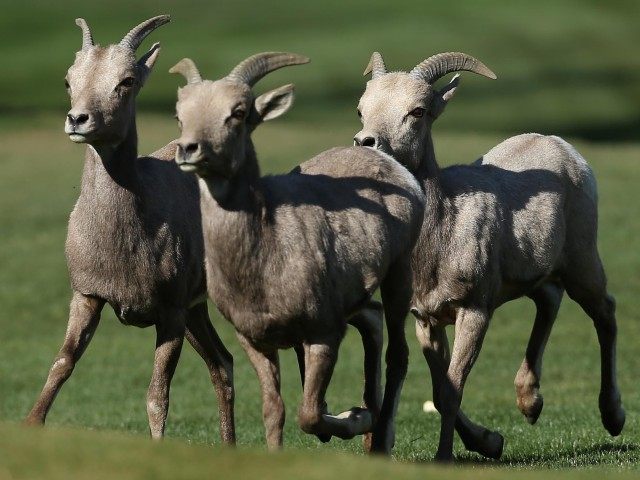Largely because the migration of bighorn sheep would be affected, the city of Los Angeles has refused to buy electricity from the Soda Mountain Solar Project, a solar plant proposed for the Mojave Desert, even though the plant could help the city reach its goal of obtaining 35% of its electricity from renewable sources by 2020.
On Thursday, city officials said the prospect of interfering with the movement of bighorn sheep, desert tortoises and other animals was reason enough to cancel the city’s support of the project, according to the Los Angeles Times. The Department of Water and Power had claimed that other proposed renewable energy projects would be cheaper and easier to use than the Soda Mountain project.
Within the last week, the Bureau of Land Management, part of the Department of the Interior, disappointed environmentalists by environmental impact statement that suggested reducing solar panels north of the I-15, which would have forced Soda Mountain to cut its size from 2,557 to 1,923 acres and decrease its output from 358 to 264 megawatts. That proposed reduction was not enough for environmentalists, who wanted the entire project canceled. They cited a column written by John Wehausen, an applied population ecologist and expert in sheep populations in California Clinton Epps, Ph.D., an expert in mammal conservation, who wrote:
The proposed Soda Mountain Solar Project would straddle Interstate 15 and cover areas between the north and south Soda Mountains on the northwestern edge of the Mojave National Preserve, pinching off the best location to re-establish important bighorn sheep movements that have been severed by I-15. The proposed development, which would include solar arrays, infrastructure and roads, would likely prevent bighorn from moving through the project area.
But now that Los Angeles has backed away from the Soda Mountain project, environmentalists are delighted. They have been supported throughout by business leaders from Baker, Newberry Springs and Shoshone, who also worry that bighorn sheep separated by the I-15 could become genetically isolated.
Meanwhile, Bechtel Corp., developer of the plant, which had looked to Los Angeles as a major player in buying electricity from the plant, must look elsewhere and look fast; time is running out for a 30% federal tax credit for the project. The project, which is projected to power over 170,000 homes in California, would use existing transmission lines to provide electricity.

COMMENTS
Please let us know if you're having issues with commenting.